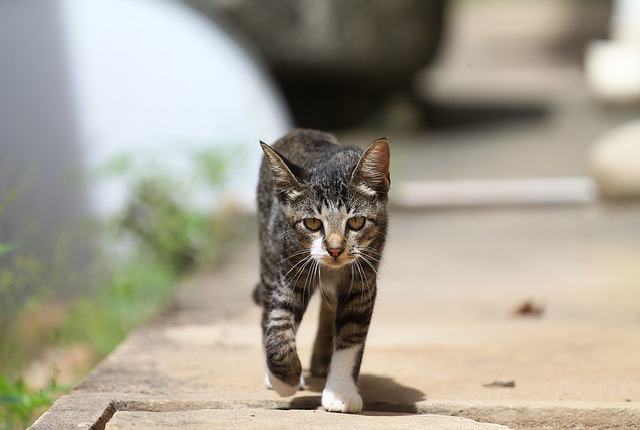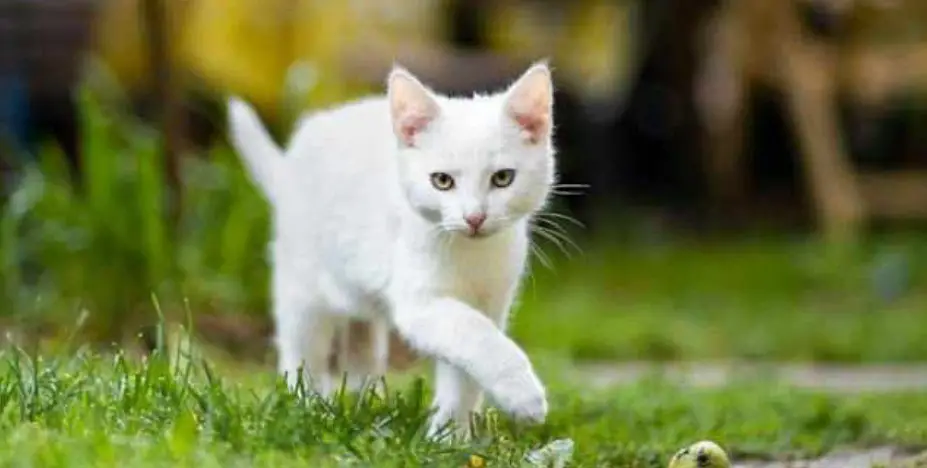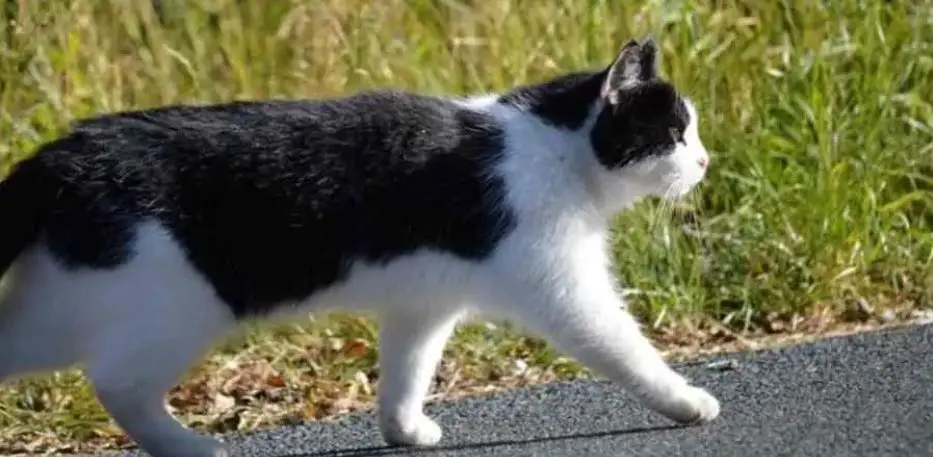9 Reasons Why Cats Disappear Without a Trace

Why cats disappear without a trace is a question often asked by some cat owners, and in this post, we will discuss why cats disappear without a trace.
Cats disappear without a trace because they got killed by a predator, lost their way home, chased away by cat haters, picked up by another cat lover who thinks they are lost, or abducted by cat nappers.
Let’s first outline why your cat might want to run away…
Reasons Your Cat May Want to Run Away

In my own opinion as a cat owner, there are some actions or activities carried out by cat owners that may chase your cat away. Let’s talk about these activities or actions
Here are some of the most common reasons your cat may want to run away:
- You are beating up or abusing your cat
- Constantly rubbing your cat’s face on poop or pee
- You are constantly depriving your cat of good playtime or attention
- You are constantly staving your cat
- You are constantly shouting at your cat unnecessarily
- Not having clean water for your cat
- Too much stress in your cat environment
- Threat from a bigger pet like a dog
- Your cat found a better food option elsewhere.
Let’s get down to why you are here…
Why Cats Disappear Without a Trace
Cats are noted for being enigmatic and elusive, traits that frequently cause them to vanish without explanation.
Whether it’s due to their natural curiosity, hunting impulses, or territorial tendencies, cats are known for their ability to disappear into thin air and sometimes still find their way home.
They are skilled escape artists, leaving owners confused and wondering where they may have disappeared due to their ability to blend into their environment, agile movements, and nocturnal habits.
Let’s break it down further…
Reasons Cats Disappear Without a Trace
In my opinion, here are some of the most common reasons cats disappear without a trace:
1. The Cat Was killed

It breaks our hearts as pet owners to think that our cherished animals would suffer an untimely death.
Unfortunately, a cat may pass away too soon from accidents, confrontations with predators, or collisions with cars.
Being naturally interested, cats may find themselves in hazardous circumstances due to their exploratory nature. Sadly, these interactions can occur quickly and without warning.
Even though it is difficult to accept the loss, we can help prevent instances like this by being aware of the risks cats face when they venture outside of their homes.
Creating a safe and secure outside space for our feline companions, like a cat enclosure or supervised walks, can lessen the likelihood that they will be preyed upon or suffer mishaps.
Read more about the causes of depression in cats.
2. The Cat Lost Its Way During Hunting
When cats venture too far from home in search of prey, they may become disoriented and lose their way back.
This is particularly common in unfamiliar territories or during nighttime explorations.
Due to their keen senses, cats can easily become engrossed in the chase, oblivious to their surroundings.
When they realize they are lost, panic may set in, making it even more challenging for them to find their way home.
In such cases, cats might seek shelter, become trapped in unfamiliar areas, or even follow their hunting instincts further away from familiar territory.
To minimize the chances of this happening, it’s crucial to provide a stimulating and enriching environment for our cats indoors.
Engaging them in interactive play, offering puzzle toys, and ensuring they receive a balanced diet can help satisfy their hunting instincts and reduce their desire to roam too far from home.
3. The Cat Was Abducted By Cat Nappers
For a variety of purposes, including selling them to research facilities, using them for illicit purposes, or even keeping them as pets, some people may steal cats.
Families may be devastated by these heartbreaking events and wonder where their cherished feline friends have disappeared.
It’s critical to keep our cats indoors or under constant supervision when they’re outside in order to safeguard them from potential abductions.
It is more likely that a missing cat will find its family if it is microchipped and wears a collar with identification tags.
Furthermore, raising awareness of these instances in the neighborhood can aid in the prevention of similar incidents in the future.
4. Picked Up By Another Cat Lover
So, being picked up by another cat lover is one of the most common reasons cats disappear without a trace.
Even though it seems improbable, there are cases where kindhearted people mistake a missing cat for a stray and choose to give it a new home.
This situation frequently arises when a cat lacks a visible microchip or identification tag, making it challenging to locate its original owner.
It’s critical to take immediate action if your cat disappears. You should alert nearby animal shelters, put up flyers throughout the neighborhood, and use internet resources specifically for lost and found pets.
This raises the likelihood that whoever unintentionally took your cat in will realize their error and give your pet back to you.
Read more about the signs of depression in cats.
5. The Cat Was Trapped And Disposed Of By Cat Haters

You won’t believe this, but some cat haters actually trap and dispose of cats, causing them to disappear without a trace. It’s a heartbreaking reality for many cat owners.
This cruel act is one of the most common reasons behind the mysterious disappearance of cats.
These heartless individuals may not realize the pain and anguish they cause to both the cats and their owners.
It’s important to spread awareness about this issue and take steps to protect our feline friends from such harm.
Recommended post: How to Help a Cat Adjust to New Home
6. Accidental Abduction
Cats that develop a habit of climbing in open vehicles, boxes, or other containers are at risk of being transported outside their territory.
An example is when your cat ends up in an open construction vehicle, service vehicle, delivery van, or convertible.
Curious cats are also carried in boxes that are transported outside their territory, this makes them disappear without a trace as they may be moved to another country.
Some of these cats that were accidentally addicted will be eventually brought around the city and, in some cases carried across the country.
7. The Cat Lost Its Way Trying To Escape Death
Being chased by people or bigger animals is one of the reasons why cats disappear without a trace.
There could be a bigger animal in your area that is making the area uncomfortable for your cat.
Even humans who do not like cats can chase your cat away from your home. Cats can also get into a fight and decide to run away.
During hunting animals cross paths and if a cat crosses the path of a bigger prey or a hunter, the cat will run for its life, and in the process, the cat might miss track of his way home and turn into a wide cat.
8. The Cat Was Picked Up By Animal Control Team
Occasionally, our inquisitive and daring cats venture too far from their homes, drawing the notice of watchful animal rescue groups.
These groups put in a great deal of effort to guarantee the welfare of the local wildlife.
The animal control crew may pick up a cat that is seen wandering around a neighborhood unidentified or that seems to require assistance to give them protection and care.
Once under their care, the animal control staff searches for the cat’s owner using predetermined procedures.
They might look for any identification tags on the cat or scan it for a microchip.
The group will get in touch with the owner and set up a reunion if the cat has a chip.
However, if the cat isn’t chipped or the owner cannot be reached, the cat might be taken to a local animal shelter for further care and eventual adoption.
9. The Cat Has Been Held up in Animal Shelter
Animal shelters are essential for giving lost, abandoned, or stray animals temporary homes and medical care.
A cat may end up in an animal shelter if it is picked up by animal control or brought in by a concerned person.
The cats’ general well-being, disposition, and state of health are assessed here.
Cats in the shelter are provided with appropriate food, water, and medical attention in a safe and cozy environment.
Volunteers and employees at shelters are frequently committed to helping the cats find their owners.
In an effort to find someone who can give the cats a loving home or help them find their family again, they might share descriptions and images of the cats on their website or social media pages.
How to Find a Lost Cat

Let’s go through a step-by-step process on how to find a lost cat:
- Stay calm and focused: It’s understandable to feel anxious, but try to remain calm. Cats are resourceful animals, and they may find their way back home on their own. Panicking might impair your ability to think clearly and take necessary actions.
- Search your home thoroughly: Start by searching your home from top to bottom. Look in all the nooks and crannies, closets, under furniture, and inside any hiding spots your cat might be attracted to. Make sure to check all rooms, including places where your cat doesn’t usually go.
- Create a safe and familiar environment: Set up a comfortable and secure space for your cat near your home. Place their favorite bed, toys, and litter box in a quiet area. This will create a familiar scent and may entice your cat to return.
- Notify your neighbors: Reach out to your neighbors and inform them about your lost cat. Provide a description and a recent photo if possible. Ask them to keep an eye out and check their garages, sheds, or any other places your cat might have wandered into.
- Spread the word: Utilize social media platforms, online forums, and community groups to spread the word about your missing cat. Include a clear photo, a description, and your contact information. Encourage people to share the information to reach a wider audience.
- Post flyers in the area: Create eye-catching flyers with your cat’s photo and detailed information. Include your contact details and offer a reward if possible. Place the flyers in highly visible locations such as community bulletin boards, local stores, and telephone poles.
- Conduct a thorough outdoor search: Once you’ve covered the basics, it’s time to search outside. Take a careful look in your yard, nearby bushes, trees, and any other potential hiding places. Call your cat’s name and use familiar sounds or treats to attract their attention.
- Use scent to attract your cat: Cats rely heavily on their sense of smell. Leave out a familiar blanket or bedding that carries your cat’s scent near your home. This may help them find their way back by following their own scent trail.
- Contact local animal shelters and vets: Reach out to nearby animal shelters, rescue organizations, and veterinary clinics. Provide them with a description of your cat and your contact information. They may have encountered a stray cat matching your description.
- Stay persistent and never give up: Keep searching, spreading the word, and maintaining hope. Cats have been known to return home after days or even weeks. Continuously check shelters, online lost and found pet databases, and community groups for any updates.
Related Questions
Why would a cat suddenly disappear?
A cat can suddenly disappear because the cat was involved in any of the following:
- The cat was killed by a moving truck.
- The cat was killed by a predator
- A cat-hating neighbor killed and removed the cat
- The cat was taken away by a cat napper.
- The cat was trapped and taken away by an animal control team.
- The cat was abducted by another cat lover who thinks the cat was abandoned.
Is it normal for my cat to go missing?
Yes, it is normal for cats to go missing for a few hours a day, especially if they enjoy being outside. However, if your cat has been missing for 12 hours or overnight, you should take steps to help find them.
How Long Can Cats Disappear?
Cats can go missing for up to 24 hours at a time, and in some cases, they may disappear for two to three days. However, if your cat has been missing for longer than expected or it is out of character for them, it’s important to conduct a thorough search and take appropriate steps to find them.
Can cats find their way home if lost?
Yes, cats can find their way home as cats have a remarkable ability to find their way home, even from long distances. They rely on their strong sense of smell, memory, and familiar landmarks to navigate back to their territory. However, not all cats will be successful in finding their way home, especially if they are in an unfamiliar area or have been displaced due to a move.
Why do cats wander off for days?
Cats wander off for days because of the following reasons:
- The cat found a better food source.
- The cat wanders off for days because of reproductive reasons.
- A Hunting cat may wander off for some days.
- The cat was trapped in a neighbor’s basement.
- The cat followed another cat lover home.
Also, read about Outdoor Cat Missing For a Week | 11 Reasons
Where Do Lost Cats Go?
The following are some places where lost cats go:
- Mountains
- Hills
- Valley
- Woods
- Local animal shelters
- Bushes around town
- Forest
- Abandoned Warehouses
- Abandoned buildings
- Taken out of the city
Conclusion
So, there you have it! Cats, those mysterious little creatures, have a knack for vanishing into thin air. Whether they’re on secret adventures or simply exploring their surroundings, their disappearing acts remain an unsolved enigma. But one thing’s for sure: these furballs will always keep us guessing and leave us wondering where they’ve scampered off to next!



![Why Does My Cat Smell So Bad [12 Potential Reasons] Why Does My Cat Smell So Bad](https://petcreeks.com/wp-content/uploads/2023/10/cat-3054260_640.jpg)
![Do Cats Need To Go Outside [Pros & Cons] Do Cats Need To Go Outside](https://petcreeks.com/wp-content/uploads/2021/08/Do-Cats-Need-To-Go-Outside-768x644.jpg)
![How Big Do Bengal Cats Get [6 Growth Stages] How Big Do Bengal Cats Get](https://petcreeks.com/wp-content/uploads/2021/07/How-Big-Do-Bengal-Cats-Get-768x644.jpg)
